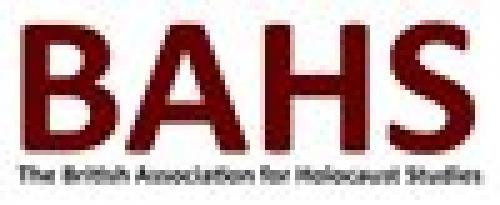‘Britain and the Holocaust’, First Conference of the British Association for Holocaust Studies

1-2 September 2014, University of Edinburgh
The first conference of the British Association for Holocaust Studies, to be held at the University of Edinburgh, presents an opportunity to shed further light on the developments in the field of Holocaust studies in Britain, review its achievements of the last c.70 years, and suggest ways of development in the future.
Britain's role
Britain’s role in the events we now call the Holocaust remains controversial. Since 1945 historians based at British institutions have assessed British foreign, domestic, military, economic and social policy in the 1930s and early 1940s to understand Britain’s role in the complex events of the genocide of Jews in Europe. Holocaust historiography written by scholars based in British universities has contributed to the field of Holocaust studies and influenced major historiographical trends in the last twenty years. In recent decades, the study of the Holocaust in Britain has embraced a variety of disciplines in the Humanities. Ever more detailed research into aspects of the Holocaust and its aftermath is carried out at British universities. In particular, the study of the after-effects of the Holocaust in the arts has become a prominent area of study. In addition, the contribution of British educators and researchers to the growing field of Holocaust education and memorialisation has become its own area of investigation and increasingly critical study of its history is developing.
Landscape of Holocaust Studies
The two-day conference in 2014 will offer the opportunity to assess the landscape of Holocaust Studies in Britain. The conference will address the following themes:
- the study of Britain’s role in the Holocaust.
- the contributions of scholars based in Britain to the study of the Holocaust and its aftermath since the end of World War II; this includes all disciplines and fields of research.
- scholarship from Britain in the larger, international context of Holocaust studies; papers in this area may, for example, review the developments of fields of study which include significant contributions by scholars in Britain or which focus on the study of Britain’s relationship to the genocide of Jews as the events were unfolding; again a range of disciplinary perspectives is welcome.
- British historians and the historiography of the Holocaust.
- the development and role of Holocaust education across the UK, including the role of government, NGOs, and the school and tertiary sectors.
In addition to the main conference, a postgraduate forum will take place. This is independent of the conference theme and concerns all PhD research in all fields and disciplines relating to the study of the Holocaust.
Speaker information
Professor Donald Bloxham, University of Sheffield, Donald Bloxham is the Richard Pares Professor of European History at the University of Edinburgh. His research interests include the perpetration, punishment and representation of genocide, war crimes and crimes against humanity.
Professor Sue Vice, University of Sheffield, Sue Vice’s research interests include the representation of the Holocaust, and she has published a book on novels about the Holocaust, Holocaust Fiction (2000), and one on children´s perspectives, Children Writing the Holocaust (2004).
For more information: Britain and the Holocaust